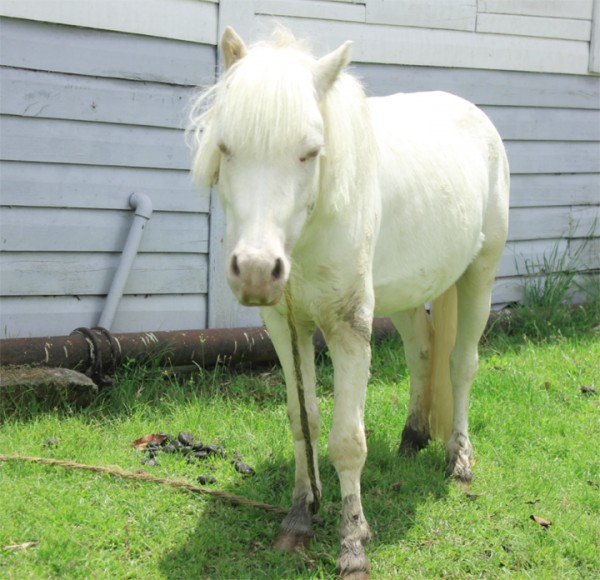The National Parks Commission and the Protected Areas Commission have acknowledged that a few of their ponies have fallen ill and are receiving veterinary care.
In response to the concern voiced by a member of the public about the condition of ponies that she spotted in the National Park, Commissioner of the Protected Areas Commission Damian Fernandes said some have fallen ill and there are a few who are advanced in age. These ponies are currently receiving medical care and that they believe that these are the ponies that were observed.
Fernandes, in a letter to the editor published in Stabroek News’ March 27, 2013 edition, noted that a veterinarian from Guyana Livestock Development Authority, with significant experience in equines, is overseeing their care and is providing the technical support going forward.
“It will take the two Commissions a while to completely address the ill health of these few ill ponies, but we have already begun to do whatever we can to ensure the animals are cared for,” he said.
Fernandes also revealed that inbreeding, which has affected the immune response of the pony herd over the years, is being addressed. “We are designing a structured breeding programme, and seeking to procure a stallion to introduce new genetic stock into the herd,” he disclosed.
Susan Isaacs, in a letter that appeared in Stabroek News’ March 26, 2013 edition, had highlighted the state of the animals. “…I was stunned and horrified to see the most emaciated cream-coloured pony standing there looking as if it was about to drop dead from starvation,” she wrote. “I thought that it might be ill, however to my horror I then looked at another brown and white pony only to see that it was in the same shocking condition.”

According to Fernandes, 13 ponies are released to graze every day and the National Parks Commission and the Protected Areas Commission supplement their feed with paddy, a mineral lick and formulated feed for equines.
In his letter Fernandes commended Isaacs for helping to keep an eye on the animals, while noting that there have been a few instances of persons trying to injure the animals.
He said the security team at the National Park has been put on guard.
“…but because we release the ponies to graze on a daily basis, we welcome the assistance of all public spirited persons to help us watch over these animals,” he said.
“Let me also state that we welcome all constructive suggestions and observations from the public, and please feel free to contact us with any additional suggestions. We will do our best with the resources available to ensure we provide a safe and improved facility for both our animals and the public at large,” he added.





